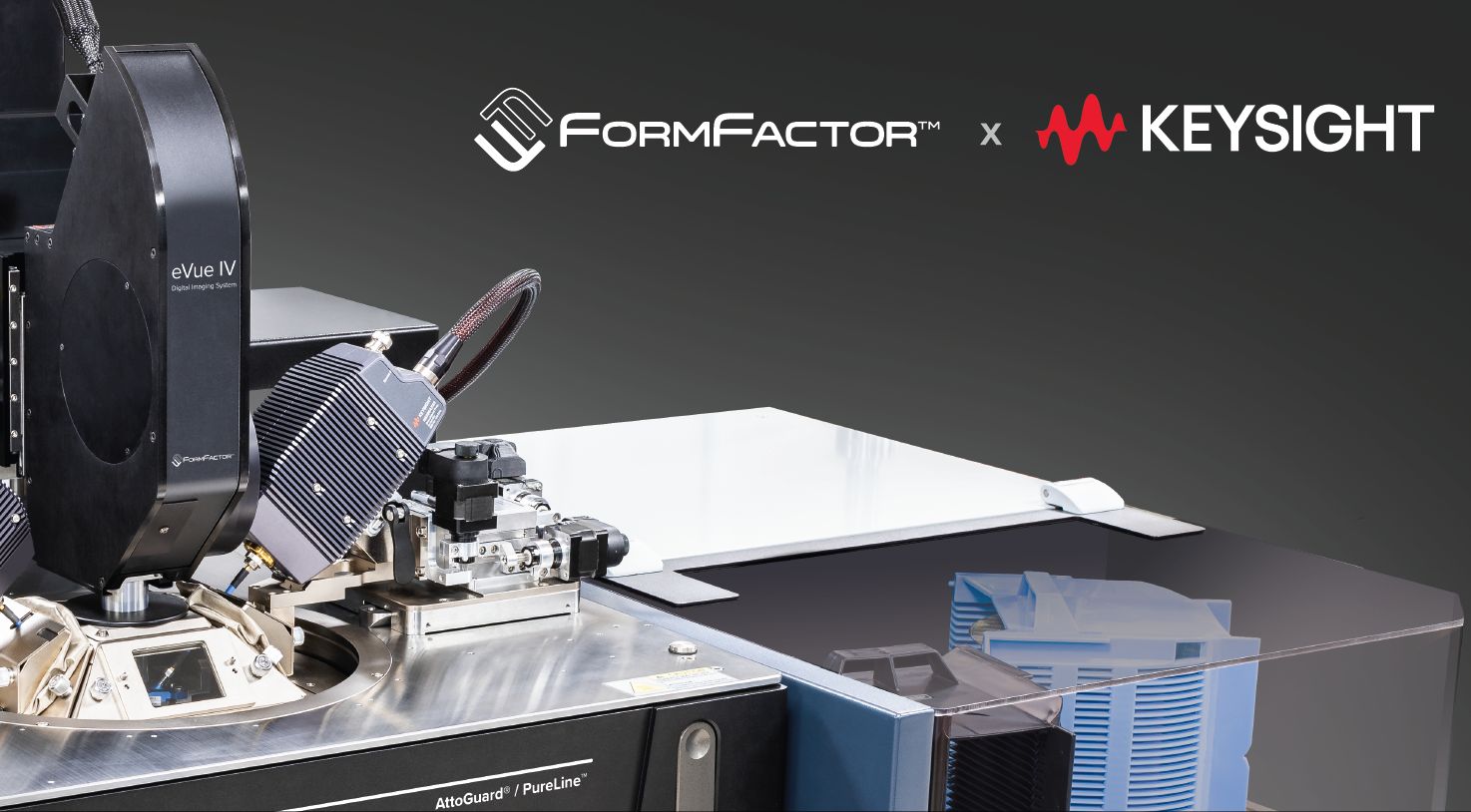
October 19, 2023
Semiconductor devices are the fundamental building blocks of modern electronics. Understanding and accurately modeling the behavior of these devices is essential for designing and optimizing electronic circuits.

October 19, 2023
Semiconductor devices are the fundamental building blocks of modern electronics. Understanding and accurately modeling the behavior of these devices is essential for designing and optimizing electronic circuits.
FormFactor and Keysight Technologies are pleased to invite you to attend a Device Modeling Seminar to be held at FormFactor’s San Jose Demo Center on Wednesday, November 8th. We will be presenting this 3-hour seminar twice to accommodate schedules and demand – a morning session from 9am to 12pm, and an afternoon session from 1pm to 4pm.
There will be the following presentations and discussions on device modeling, along with equipment demonstrations. There will also be peer networking opportunities.
The Basics of Device Modeling – Sherry Lyu, Sr. Applications Engineer, Keysight Technologies
Semiconductor devices are the fundamental building blocks of modern electronics. Understanding and accurately modeling the behavior of these devices is essential for designing and optimizing electronic circuits. In this topic, we will have an overview of Keysight’s one-stop end-to-end solution for device model developments. We will cover the general introduction and latest features of Keysight’s measurement tool WaferPro Express, the model extraction tool MBP and IC-CAP, and the model verification and reporting tool MQA.
A-LFNA Intro – Constructing a More Accurate Model by Incorporating 1/f Noise – Craig Domeny, Sr. Applications Engineer, Keysight Technologies
In pursuit of semiconductor device performance and reliability, gaining an in-depth understanding of low-frequency noise has become a paramount challenge and must-have for advanced technologies. Keysight’s E4727B Advanced Low-Frequency Noise Analyzer (A-LFNA) is a powerful tool in this quest, enabling modeling engineers and researchers to delve deeper into the intricacies of noise phenomena for more accurate models. This presentation unveils the major capabilities and advantages of the A-LFNA system, offering attendees a firsthand look through an engaging live demonstration.
Next Generation DC Probes for Accurate and Repeatable Device Modelling Measurements – Kainoa Kekahuna, Applications Engineering Manager, FormFactor
The semiconductor industry continues to see the relentless downscaling of gate length and development of new architectures for silicon-based transistor to 2 nm and beyond. The on-state currents of such advanced transistors are increasing with decreasing supply voltages. Their off-state currents are kept very low to reduce power consumption. Smaller test pads to reduce lithography costs and the use of copper backend metallization have increased the difficulties for probes to have low and stable contact resistance as there are little fresh pad metal available for deeper probe scrubs or re-probing. These issues aggravate especially at elevated temperatures when the pad aluminum cap layers have been probed and their underlying copper metallization oxidize rapidly, hindering the ability to achieve good probe contacts. In this talk, we introduce the next generation advanced guarded DC probes with small probe scrubs, low leakage performance and true Kelvin force sense probe tips to address the test challenges of making precise and consistent device modelling wafer measurements.
Making Traceable and Accurate sub-THz Measurements for Wafer Test Applications – Jason Alikpala, Sr. Staff Applications Engineer, FormFactor
To support the development of 6G and beyond mobile communication products, wafer S-parameters and RF measurements at sub-THz frequencies are becoming common, daily measurements for test engineers. Accuracy, repeatability and traceability in tests, particularly for active devices, are necessary requirements as test engineers collaborate among their colleagues and customers in labs of various geographical locations. In this talk, based on published IEEE papers, we are going to discuss how probe tip power calibration, continuity checks in banded sub-THz measurements, probe tip contact resistance monitoring as well as best practices in autonomous over-temperature high frequency measurements, can help to address these evolving test requirements.
Featured Demo Stations and Applications include:
MPS150-SiPh with Silicon Photonics test application
—